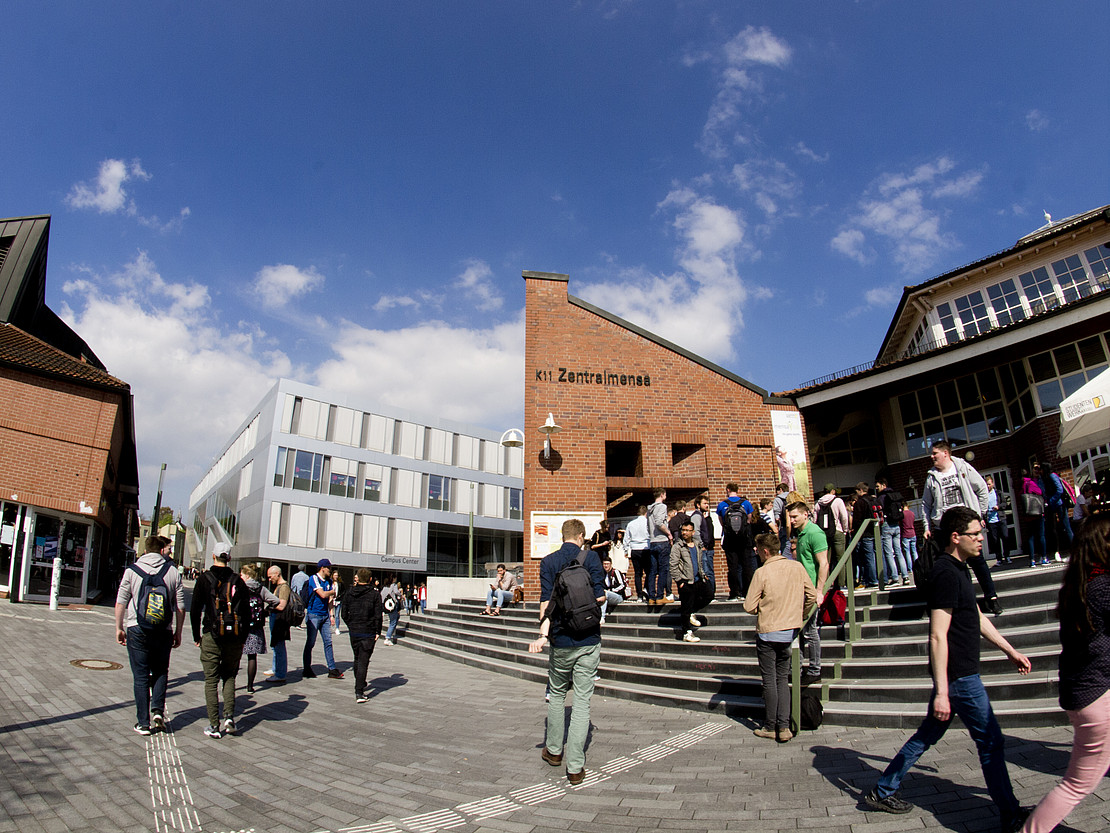This page contains automatically translated content.
Higher Education Pact: Opportunity for Kassel University
 Image: University of Kassel / Sonja Rode
Image: University of Kassel / Sonja RodeNegotiations went on until late in the evening, but in the end there were many satisfied faces - "fair, factual and solution-oriented," is how University of Kassel Chancellor Dr. Oliver Fromm describes the negotiations on the new Hessian Higher Education Pact, which were concluded at the beginning of March.
"Of course, no cornucopia has been poured out on the universities, but no one expected that either," says Prof. Dr. Reiner Finkeldey, President of the University of Kassel. In principle, however, it should be noted that the new higher education pact takes into account the sharp rise in student numbers and provides a reliable funding framework. "This represents a turnaround in funding," explains Dr. Fromm. "Reliability and predictability are a very positive step in the right direction for the University of Kassel," Prof. Finkeldey describes.
He is also pleased about the creation of additional professorships by the state - 300 additional professors are to be hired at Hessian universities in the coming years according to the plans of the Hessian Ministry of Science and Culture (HMWK). Kassel is expected to receive 23 new professorships of this total. Together with successfully acquired professorships from other programs, the University of Kassel will thus receive at least 40 new professorships in the coming years. "This corresponds to an increase of almost 15 percent and offers the university a unique opportunity to significantly raise its profile, invest in forward-looking research areas and significantly improve the quality of teaching," says Prof. Finkeldey.
The declared goal of Science Minister Angela Dorn is to improve the supervision rate of students per professor through the new positions. "However, this gratifying development also presents us with new challenges," describes Dr. Fromm. For example, professorships are only partially funded by the state. This means that the universities must invest a considerable portion of the now permanent funds from basic financing in equipping these professorships with staff positions and material resources.
The negotiating partners also dealt intensively with student numbers - declining numbers of new enrollments are expected nationwide in the coming years. "No financial sanctions are envisaged for moderately declining student numbers, which is an important and very positive point," Fromm finds. The chancellor also considers the result that the basic funding provided by the state for the university will reliably increase by 4% each year to be very important. Dr. Fromm: "This means that in the future, wage increases and rising material and energy costs can be absorbed and no longer have to be financed from the substance."
Prof. Finkeldey: "The reliability of funding through the new higher education pact is particularly worthy of mention - here the Minister has personally ensured that these funds are not jeopardized by further consolidation contributions from the state. This is a great success." Now, he said, it is up to the university to use this good result for positive development. "The responsible use of university autonomy thus becomes more important than ever for all parties involved, i.e. universities and HMWK," said Prof. Finkeldey.